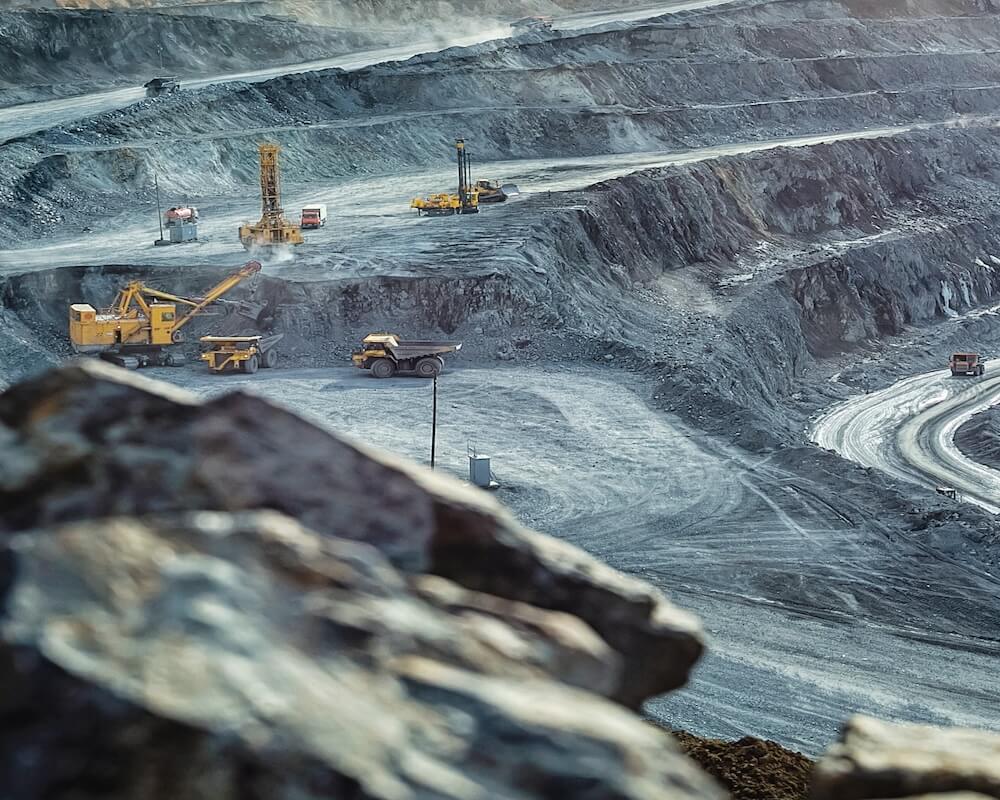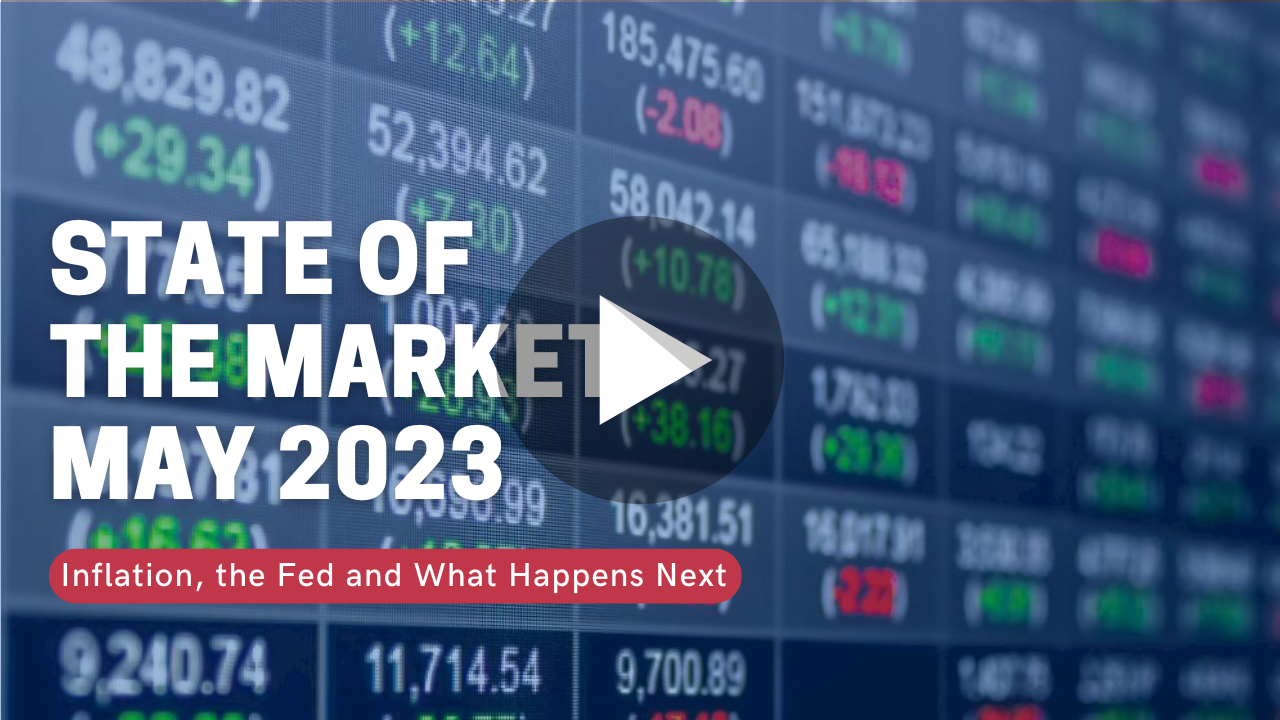Posted May 12, 2023
By Zach Scheidt
What This Week’s Inflation Report Means for the Fed
This week, I got the chance to catch up with my colleague J-Rod for our monthly Lifetime Income Report Pro State of the Market call.
On the call, we dug into the latest inflation data from this week’s CPI report.
We also discussed the stock market’s reaction to the report and how it could influence the Federal Reserve’s interest rate policy this year.
I’m excited to share a portion of our conversation with you today. Click on the video below to watch a clip from our call.
Video Transcript:
This week we got an inflation reading from the consumer price index (CPI) report. As we know, inflation is front and center when it comes to the way the market trades, but more importantly, when it comes to your day-to-day life, what you're paying for rent, what you're paying for groceries, what you're paying for gasoline and many other costs in your life. Inflation has been high over the past year and a half or so, and a big part of it is due to supply chain dynamics. If we're not making enough stuff, but we're giving people money to spend, what are these people going to spend money on? And more people competing to buy goods and services naturally drives prices higher, which is why we've had inflation. At the same time, we're trying to stamp down that inflation and keep it from becoming a problem, eroding the wealth of savers in the long term, which has been a difficult process.
So this week, the CPI came in relatively close to what people expected. Inflation was up 4.9% year-over-year in April, and the core inflation (which takes out food and energy) pulled back just a little bit to 5.5% year-over-year. Now, we know the Fed's target inflation rate is 2%, so we’re a long way from that. And at the same time, we also know that inflation peaked a few months ago, actually almost a year ago now. So we have been seeing these inflation reports come in slower and slower and slower, but it's still a problem.
One thing I wanted to make sure you're aware of is that when inflation comes down, it doesn't mean that prices are coming down. It means that prices are still rising, but they're not rising as quickly as they were before. It's almost like thinking about being in a car. Your speed might come down, but you're still moving forward on the road. And so that's what we're seeing right now; inflation is coming down, so our speed is coming down, but we're still moving forward on the road, which means that your savings are still worth a little bit less each month, which is why we need to focus so much on income and on growing your wealth through the different opportunities that the market gives us. And that's why we're so focused on the dynamics that are going on in the market and bringing those to you on these calls month after month so that you are in a prime position to protect that wealth you've worked so hard to earn.
One of the problems that I have with CPI and specifically core CPI is that we take out food and energy. The reason they do that is that food and energy prices can shift quickly one way or the other. So if you want to look at a long-term trend, it's better to take those out so that you can see what's going on in the big picture. However, food and energy are extremely important, and so by taking them out, you're taking out some of the most important parts of inflation that are really affecting what you and I have to pay for our day-to-day expenses.
So even without food and energy, inflation is still very high at 5.5%, and gas prices were up 3% in April. So this was part of what was driving inflation higher. One piece of good news with that is that gas prices have started pulling back in May. So there's some argument to be made that we could see that as a lower inflation reading next month. But we're only 10 days into May, so we still got plenty of time for that to adjust, and it's a little too early to be reading too much into that one portion of the CPI.
The other thing that helped keep inflation high was shelter and used car prices. So shelter, including rent but also what it costs to own a house, they call it owner's equivalent rent. That has been high, and it's been stubbornly high because the residential real estate market has been very tight. And the reason for that is the fact that there's just not enough inventory out there. There aren't enough homes available for the people that want them, and so regardless of what's going on with interest rates and affordability, people still have to put a roof over their family's heads. And so those prices remain relatively high.
Ironically, the market is starting to sniff out the fact that the Fed might be cutting interest rates moving forward. But as long-term interest rates have started to back off, that's caused mortgage rates to move lower, which causes more activity in the residential real estate market, which helps boost prices, which then hurts us for the inflation process because that's part of what's driving inflation higher. So the Fed can't get out of its own way, and the more that we expect inflation to pull back, the more we're adding fuel to inflation moving higher again. So you can see this is almost like a circular reference problem in the market right now, and it's why I believe that you still have to be very wary of inflation.
And it puts the Fed in a very tough situation because they're trying to raise interest rates to put the breaks on the economy. They don't want to break anything. They've already started breaking some things, and we'll talk about that a little bit later. But at the same time, they want to keep inflation from moving higher, so they have to keep their foot on the brake, which gets us in a tough situation for the overall economy.
Speaking of the Federal Reserve, I wanted to spend a little bit of time talking about what's going on with their policies. And I'll give you a little preview of a unique event that's going on next week that I want to make sure that you're tuned into. So the Fed is front and center in today's market. They are between a rock and a hard place, and the expectations are now that the Fed is going to cut interest rates sometime later this year. That's because the market believes that we're going to have a recession starting later this year and that the Fed will need to cut interest rates to help support the overall economy.
Meanwhile, Jerome Powell and the Federal Reserve have been saying to the market, "No, we're not going to cut rates. We're going to keep rates higher for longer. We're going to keep pressure on inflation. We're not going to make the same mistake that other administrations have made and let inflation come back after we got close to killing it off." And so there's this difference between what the Fed is saying and what the market is expecting the Fed to do or even trying to pressure the Fed into doing. And in some ways, this feels like when a parent is in the shopping mall and their kid is misbehaving and they say, "You better come back here. I'm going to count to three. One, two..." And the kid just doesn't listen because the kid knows that they’re never going to get to three and that there's never going to be any real consequence.
Well, that's exactly what the market is doing to the Fed right now in some ways. Jerome Powell is saying, "I'm not going to cut rates. You better pay attention. Rates are going to be higher. One, two..." And the market is saying, "Nope, nope, you're not going to be able to do that because we were going to have a recession and you're going to have to help support the economy, which is more important than killing off inflation." So the market is calling the Fed's bluff. Powell has to convince the market somehow that "No, we're serious," and we as investors have to sit there and watch both sides of this argument and try to figure out what's going to happen in the market. It's a challenging job, but it's a rewarding job too because as we get this right, and as we navigate the ebbs and flows of the market, there are great opportunities to make profits in this exact situation.
So looking a little bit more closely at the Fed, this whole situation is all brought on by a secret meeting that happened in 1910 when the Fed was created behind closed doors through a secret meeting of really powerful bankers. This gave birth to the Federal Reserve, to the whole situation of how our monetary policy is conducted, how the value of the dollar is either protected or eroded over time, and it was a very important meeting at Jekyll Island in the secrecy of a private club.
And we are going to be at Jekyll Island next week. I'm actually traveling there. I've got a flight booked for early next week. Going to be joining Jim Rickards, Danielle DiMartino Booth, and several other of our Paradigm Press editors to convene on this historic spot and have a summit on what's going on in the market, what's going on with the Fed, what we can expect moving forward, and to put all the puzzle pieces together from all of our different perspectives and the research that all of us are doing to get this cohesive expectation of what we can expect.
And I want to make sure that you know you are invited to participate in this. We are going to have a live stream broadcast at 1:00 p.m. Eastern on Wednesday, May 17, so write that down: Wednesday, May 17, 1:00 Eastern. We have a live stream between Jim Rickards and Danielle DiMartino Booth. Many of us will be there in attendance or as part of this whole meeting, and I want to make sure that you're there, and that you're able to pick up on the important information that we're going to be bringing to you. So there should be a link either below this video right now or being sent to your inbox shortly to make sure that you're able to RSVP for that meeting. This is important. It's timely given what's going on in our market and the fluctuations and just your responsibility to protect your wealth and to protect your hard-earned savings during this tumultuous time. So please make sure that you join us on Wednesday, May 17 at 1:00. Look for that RSVP link so that you can be signed up for that.
In looking at what the Fed is doing and the long-term expectation for interest rates, cuts, and the way the market is adapting to this, one of the things that we're seeing is that the U.S. dollar is falling, because people are expecting interest rates to be cut. When interest rates are cut, it means that you don't get as much value for owning a dollar because the interest that you can get for your dollars is just not quite as high. So international investors are moving money into other areas of the globe, and that is causing the U.S. dollar to trade lower.
So just wrapping up, we've got an inflationary environment. We need to protect your wealth. We have interest rates that are not likely to come down right away, so don't bet on lower interest rates. We have a federal reserve that is trying to thread a needle, and please make sure that you join us next Wednesday at 1:00 Eastern to discuss what the Fed is doing, where they're at, what we can expect in the markets, and focus on making sure that you're invested in commodities, in real tangible stuff that can benefit from a falling dollar because I do believe that the dollar's going to continue lower. And that's good news for gold. That's good news for copper. That's good news for many of the commodities even in the energy area, but it's bad news for other areas of the market.
So it's an important time to be very strategic about protecting your wealth, growing your wealth over time through these specific opportunities, and making sure that you stay on top of the changes that are happening day by day as we work through this market. And of course, make sure that you tune in next month because I'm sure there will be more changes that we'll be discussing at that point as well.

How Others’ Incompetence Costs You Big-Time
Posted January 17, 2024
By Byron King

Turning Empty Cubicles Into Houses
Posted January 15, 2024
By Zach Scheidt

"Boring AI": Overlooked Opportunity From CES 2024
Posted January 12, 2024
By Zach Scheidt

5 Must-See Predictions
Posted January 10, 2024
By James Altucher

Welcome to Earth, the Mining Planet
Posted January 08, 2024
By Byron King

